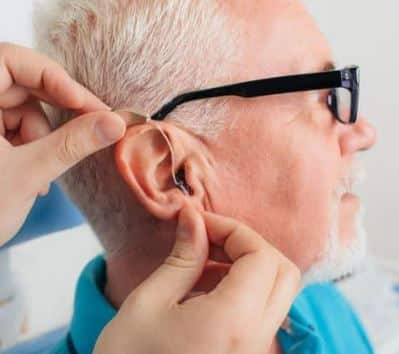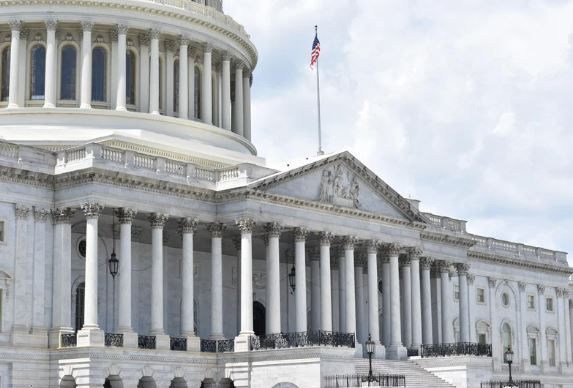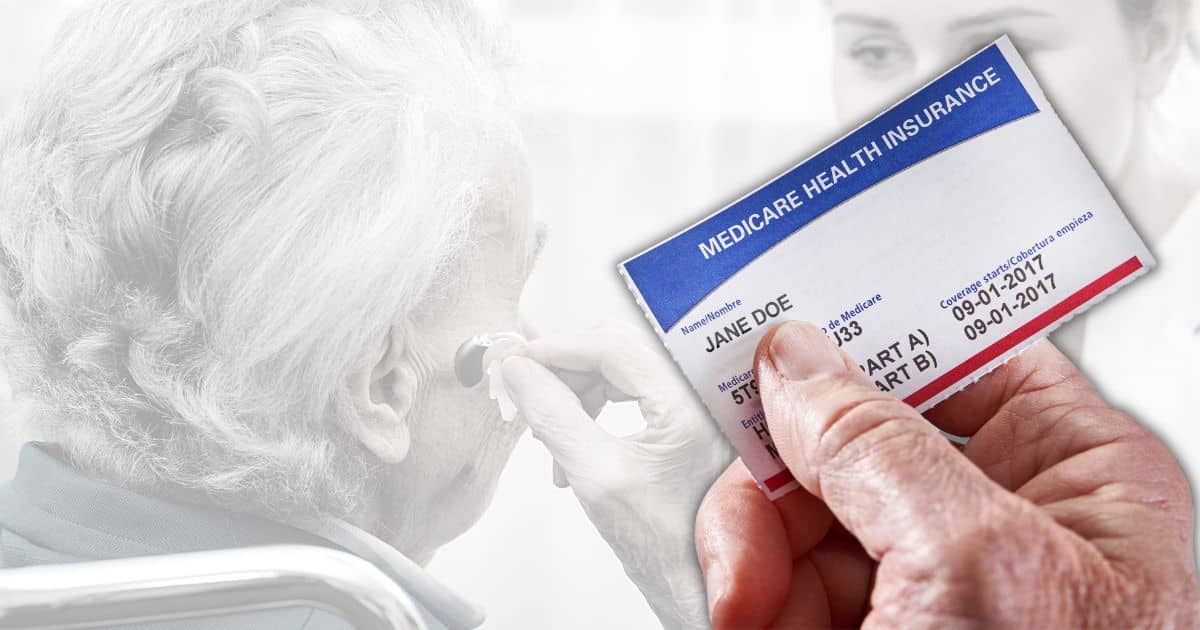Hearing loss is a common health concern affecting millions of Americans, and hearing aids are essential devices that can significantly improve the quality of life for those with hearing loss. However, the high cost of hearing aids can be a barrier for many seniors and individuals with disabilities, limiting their access to these crucial devices.
In this article, we’ll explore the current state of Medicare coverage for hearing aids, the challenges faced by beneficiaries, potential solutions, and the importance of bridging the gap in access to this vital form of care.
Understanding Medicare
Before delving into the topic of Medicare coverage for hearing aids, let’s understand what Medicare is. Medicare is a federal health insurance program designed to provide coverage for specific groups of individuals, including those aged 65 and older, people with end-stage kidney disease, and younger individuals with certain disabilities.
Medicare consists of four parts: Part A, Part B, Part C (Medicare Advantage), and Part D (prescription drug coverage). Each part offers different types of coverage for various medical services and treatments.
- Medicare Part A covers hospital care, skilled nursing facility care, hospice care, and some home health care.
- Part B covers medical services and supplies that are necessary to diagnose or treat a medical condition, as well as preventive services to maintain health and prevent illness.
- Medicare Part C, also known as Medicare Advantage, allows beneficiaries to receive their Medicare benefits through private health insurance plans. These plans often offer additional benefits beyond what is covered under traditional Medicare.
- Medicare Part D provides coverage for prescription drugs, helping beneficiaries afford necessary medications.
Does Medicare Cover Hearing Aids?
One of the primary questions surrounding Medicare is whether it covers hearing aids and related services. Unfortunately, under the traditional Medicare Parts A and B, hearing aids, fittings, and hearing exams explicitly for purchasing hearing aids are not covered.
However, there are some exceptions and alternative options available for beneficiaries.
 Medicare Part B Coverage for Diagnostic Hearing Exams:
Medicare Part B Coverage for Diagnostic Hearing Exams:
Medicare Part B does cover the cost of diagnostic hearing and balance exams if your doctor orders them to determine the need for medical treatment. However, you will be responsible for paying the Part B deductible and 20% of the approved Medicare cost, along with any additional charges if the services are provided in a hospital setting.
- Medicare Advantage Plans:
 Medicare Advantage (Part C) plans, which are offered by private insurance companies, may provide coverage for hearing aids, hearing exams, and related services.
Medicare Advantage (Part C) plans, which are offered by private insurance companies, may provide coverage for hearing aids, hearing exams, and related services.
According to the Kaiser Family Foundation, 97% of Medicare Advantage enrollees in 2021 had access to a hearing benefit. Among these enrollees, 95% are in plans that provide access to both hearing exams and hearing aids, but hearing aid coverage is subject to annual dollar limits or frequency limits. The average dollar limit for coverage is $960, with the most common frequency limit being one set of aids per year.
United Healthcare, among others, have Advantage plans that cover hearing aids. Companies like TruHearing and others work with insurers to provide their hearing benefits, both for private health and Medicare Advantage plans.
Why Doesn’t Medicare Cover Hearing Aids?
The lack of coverage for hearing aids under original Medicare can be traced back to the program’s inception in 1965. At that time, hearing aids were less advanced, and lifespans were shorter, which influenced the decision not to include coverage for hearing aids, dental, or vision care.
While there have been attempts to introduce legislation that would expand Medicare coverage to include hearing aids, such bills have faced challenges and have not yet come to fruition. However, recent developments indicate a growing recognition of the importance of addressing this issue.
Will Medicare Ever Change to Cover Hearing Aids?

Medicare Hearing Aid Coverage Act would expand Medicare coverage to include hearing aids
Efforts to add coverage for hearing aids to Medicare have continued over the years, and in January 2023, Representatives Debbie Dingell (D-MI) and Brian Fitzpatrick (R-PA) reintroduced the bipartisan Medicare Hearing Aid Coverage Act. This act seeks to expand Medicare coverage to include hearing aids for beneficiaries, acknowledging the significance of hearing care for older adults.
While the outcome remains uncertain, the introduction of such legislation and bipartisan support indicate a step in the right direction towards providing better access to hearing aids for seniors.
The Cost of Hearing Aids and How to Save Money
Hearing aids can be expensive, ranging from a few thousand to several thousand dollars for a pair. The cost can vary depending on the level of technology, warranty periods, etc.
To help offset the cost of hearing aids, several strategies can be considered:
- Charitable Foundations: Charitable organizations across the US, like the Lion’s Club, may be able to assist in the purchase of hearing aids
- Private Health Insurance: Depending on your insurance plan, it may cover hearing tests, evaluations, or hearing aids. Check with your provider for more details. Over the last several years, a handful of states have begun mandating a minimum level of hearing aid coverage, so if you haven’t checked in a while or your benefit has renewed recently, it might be worth checking into.
- Flexible Spending Accounts (FSA) and Health Savings Accounts (HSA): These accounts allow you to set aside pre-tax funds for medical expenses, including hearing aids.
- Veterans Administration (VA) Benefits: U.S. military veterans who qualify for VA health care may be eligible for free premium hearing aids.
- Vocational Rehabilitation Agencies: If you’re still working or planning to continue working, but don’t have the extra resources to cover hearing aids, many state vocational rehabilitation agencies will help fund for the cost of hearing aids.
As mentioned above, the vast majority of people with Medicare Advantage plans have some level of hearing aid benefit, so if you’re looking for ways to reduce costs, it’s worth exploring what sort of coverage you may have.
Additionally, OTC hearing aid options are also now available and discussed below.
Medicaid Coverage for Hearing Aids
Medicaid is a state-operated program that provides health coverage to eligible low-income individuals, including older adults and people with disabilities. Medicaid coverage for hearing aids varies by state, and while some states provide coverage, others do not.
In states that offer hearing aid coverage, Medicaid recipients typically need a medical diagnosis and a prescription for hearing aids from their doctor. Each state has specific guidelines and limitations regarding the extent of coverage provided.
It’s worth noting that federal guidelines require all states to provide Medicaid hearing aid coverage and services for children and young adults until the age of 21. This ensures that children with hearing loss have access to the necessary support and resources for their development and well-being.
Over-the-Counter (OTC) Hearing Aids:

In late 2022, OTC hearing aids became a new option for US consumers to purchase a device without a prescription
In recent years, there have been developments regarding over-the-counter (OTC) hearing aids. In 2017, Congress passed the “Over-the-Counter Hearing Aid Act,” allowing for the sale of affordable hearing aids without the requirement of consulting a hearing professional or audiologist.
In July 2021, President Joe Biden issued an executive order asking the U.S. Department of Health and Human Services (which includes the FDA) to issue guidance on OTC hearing aids. This led to the FDA approving OTC hearing aids for sale in the United States in August 2022, with sales beginning in October 2022.
OTC hearing aids are intended for people with mild to moderate hearing loss and may offer an accessible and more affordable option for individuals seeking hearing assistance.
However, you are likely to be best served by at least having an evaluation by an audiologist – something Medicare will cover – prior to purchasing an OTC device. In fact, in 2023 CMS made it even easier to directly access an audiologist for a hearing exam. Based on the results, you will be able to know whether you would be a candidate for an OTC device or whether you should consider a prescription hearing aid to best meet your needs.
Advocating for Improved Hearing Aid Coverage
The introduction of the Medicare Hearing Aid Coverage Act marks a positive advancement in advocating for improved hearing care for older adults, aiming to enhance accessibility and affordability of hearing aids. The Act recognizes the significant impact of hearing loss on emotional, social, and medical well-being.
Recent findings from the landmark ACHIEVE study highlight the potential benefits of hearing intervention for older adults at risk of cognitive decline and dementia. Using hearing aids for three years in individuals with hearing loss and higher cognitive decline risk resulted in a remarkable 50% reduction in cognitive decline. The intervention’s mechanisms may involve easing listening for the brain or fostering social and physical activity to contribute to reduced cognitive decline. Regular hearing check-ups and timely addressing of hearing issues are crucial for overall health and well-being.
Continuing advocacy efforts for expanded Medicare coverage, encompassing hearing aids, dental care, and vision care, is essential. The inclusion of hearing aids in standard Medicare coverage could significantly improve the lives of millions of seniors, promoting dignity, independence, and overall better health outcomes.
Summary
The lack of Medicare coverage for hearing aids poses challenges for seniors and individuals with disabilities, leading to communication difficulties, social isolation, and reduced quality of life. While traditional Medicare Parts A and B don’t cover hearing aids, Medicare Advantage plans may offer partial relief.
The bipartisan Medicare Hearing Aid Coverage Act strives to address this issue, acknowledging the importance of hearing care for older adults and those with hearing loss, but its progress in congress remains uncertain. In the interim, there are ways to mitigate the cost of hearing aids, such as seeking assistance from charitable foundations, using private health insurance benefits, or considering over-the-counter (OTC) hearing aids. Medicaid coverage for hearing aids varies by state, which could also offer a potential solution for those eligible.
Promoting awareness of hearing health and supporting legislative initiatives for expanded coverage are crucial steps to improving access to hearing aids for seniors and individuals with hearing loss, enhancing their quality of life and fostering independence.






